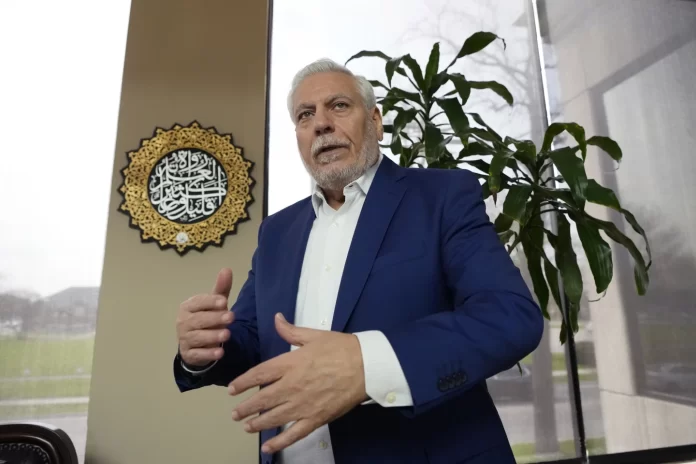13 April, 2024
Muslim leaders are expressing frustration with the White House’s efforts to engage them on the Gaza conflict. Many are disheartened by what they perceive as insufficient action from President Joe Biden in response to their concerns about Palestinian suffering. Despite ongoing outreach from the White House to discuss the issue, some Muslim and Arab American leaders feel that their conversations with Biden and his team have not led to meaningful changes.
Osama Siblani, a publisher in Dearborn, Michigan, received a text from a Biden adviser seeking his opinion on Biden’s recent call with Israeli Prime Minister Benjamin Netanyahu. Siblani’s response highlighted a desire for more significant steps to address the situation.
Informal contacts with Muslim and Arab American leaders have become crucial amid mounting anger over Biden’s perceived support for Israel. However, many leaders have declined further discussions with the administration due to frustration over what they view as a lack of progress.
Michigan state Rep. Abraham Aiyash, who met with senior officials in February, expressed feeling at a loss for words on how to influence the White House’s approach. He, along with others, believes that efforts to engage in dialogue have not resulted in substantive policy shifts.
White House officials, including national security adviser Jake Sullivan and others, have been actively involved in outreach efforts. Biden is kept informed of these discussions, and Vice President Kamala Harris has also engaged with Muslim and Arab American communities.
Some leaders, like Salam Al-Marayati of Los Angeles, feel disillusioned by Biden’s support for Israel following a surge in violence. They believe that the administration has not truly listened or altered its approach despite meetings with the National Security Council and State Department.
The ongoing conflict in Gaza, which has resulted in the deaths of thousands of Palestinians, has strained relations further. U.S. Rep. Ilhan Omar emphasized the need for policy changes to stop weapons deliveries to Israel. While Biden has hinted at adjustments in U.S. policy based on Israel’s actions, many remain skeptical.
A recent meeting between Biden and Muslim leaders was adjusted after some declined to attend due to concerns about Biden’s support for Israeli military operations. This shift reflects broader discontent within the community over the administration’s stance.
Despite challenges, some leaders continue to engage with the White House, like Wa’el Alzayat of Emgage and Dearborn Mayor Abdullah Hammoud. They advocate for a ceasefire and strive to influence policy decisions that could save lives.
Meetings with Lebanese Americans have also occurred, focusing on concerns about the conflict’s regional implications. Ed Gabriel, of the American Task Force on Lebanon, highlighted the frustration over ongoing violence and questioned when Biden would take more decisive action.
Overall, Muslim leaders are seeking substantive changes in U.S. policy toward Gaza and are pushing the administration to prioritize humanitarian concerns over ongoing military operations.




